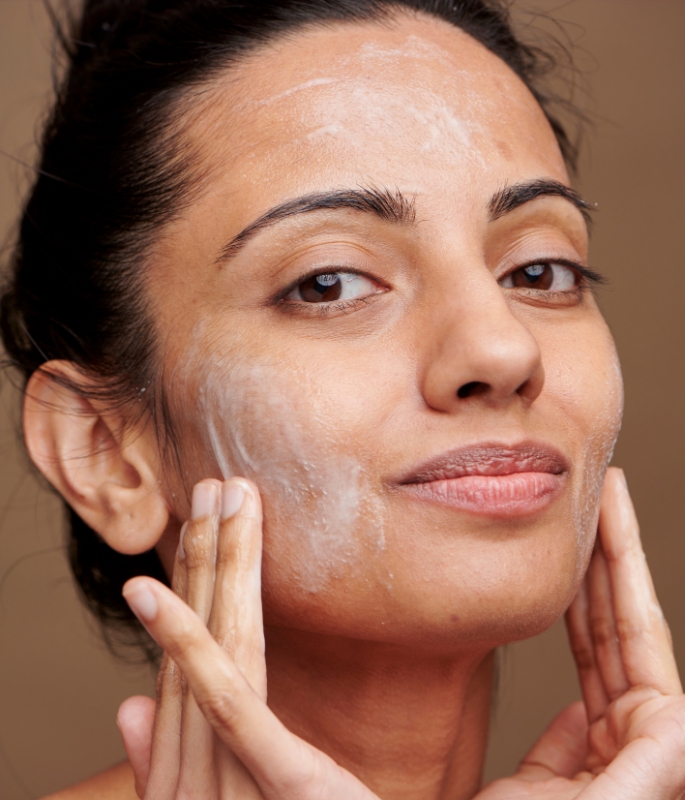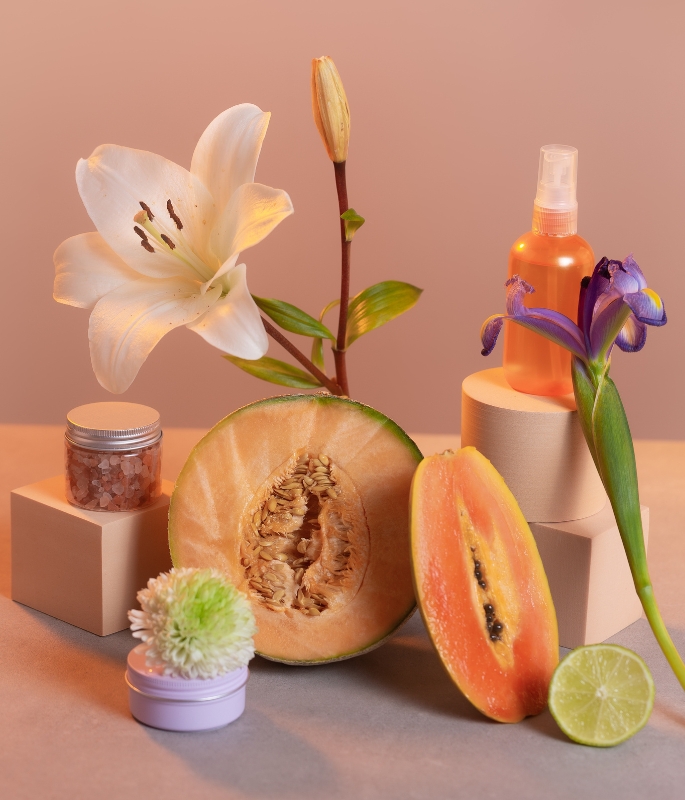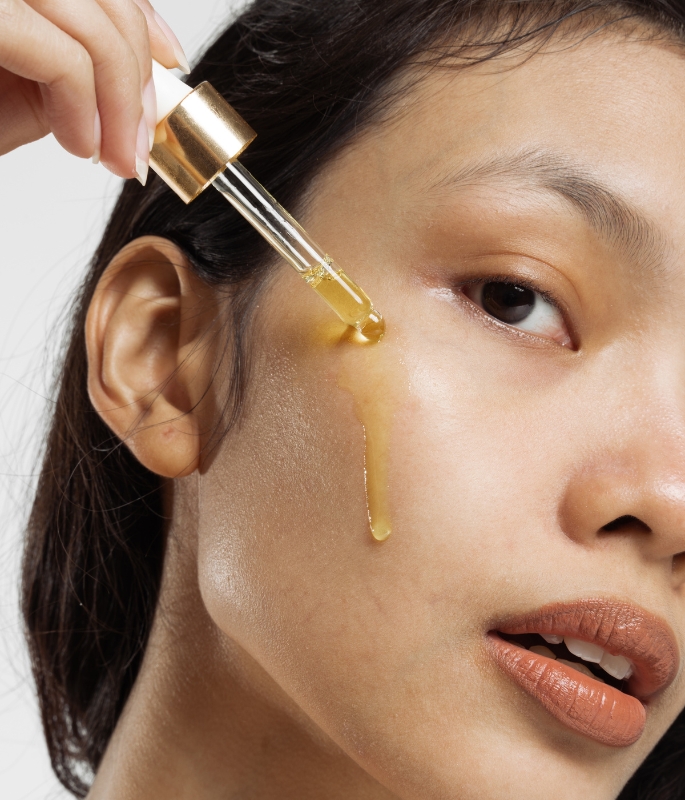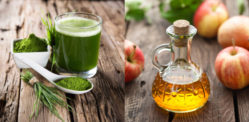Coconut oil has a very high potential to clog pores.
Natural skincare is all the rage these days. But is it really all it’s cracked up to be?
Over recent years, the natural label started to appear more and more on skincare products.
More recently, however, sustainability and clean labels have become popular as more and more people have become conscious about product origin.
Join us as we discuss if natural and organic Ingredients are truly better for your skin.
Natural, Organic and Chemical-Free
 Skincare products marketed as natural or organic are bound to attract a lot of people.
Skincare products marketed as natural or organic are bound to attract a lot of people.
But beneath this surge in demand lies a complex interplay of marketing strategies, consumer preferences, and scientific truths.
People are looking for products that are free of synthetic ingredients and harmful chemicals.
This is because we assume that chemicals are bad and natural skincare products are always safe for our skin, however, this assumption is a dangerous one.
Chemical-free is a common marketing term used in clean beauty brands, yet all things are made up of chemicals.
The terms ‘natural’, ‘organic’, and ‘chemical free’ are often used interchangeably in the skincare industry, but they have different meanings.
‘Natural’ refers to ingredients that aren’t made in a lab and instead come from sources like plants, but it’s a pretty vague term.
While many natural ingredients are gentle and non-irritating, several natural substances can cause allergic reactions in some people.
For example, essential oils are highly concentrated plant extracts that can be irritating to the skin.
They should be used with caution, and only in small amounts.
It is important to note that the term ‘natural’ is not regulated by the FDA.
This means that there is no guarantee that a product labelled as ‘natural’ is free of synthetic ingredients or harmful chemicals.
Organic products use ingredients that are grown without synthetic fertilisers, pesticides or other chemicals.
The term ‘chemical free’ is very misleading. Chemical-free products are free of synthetic chemicals, but they may contain natural chemicals.
Plants, for example, are made up of chemicals.
Some of these are antioxidants, which can serve as good skincare ingredients, some are fragrances, pollen and other things that can cause allergy and irritation.
Natural or Synthetic?
 Amidst the surge in natural skincare’s popularity, some experts reject DIY skincare, while clean beauty advocates shun synthetics.
Amidst the surge in natural skincare’s popularity, some experts reject DIY skincare, while clean beauty advocates shun synthetics.
The truth is more nuanced. Both approaches carry drawbacks and advantages.
So, what’s the solution? If you’re looking for a safe, effective, and affordable skincare routine, you shouldn’t rely solely on natural products.
Instead, you should choose a skincare routine that combines both the goodness of nature and the power of science.
This will give you the best of both worlds: the safety and efficacy of synthetic ingredients with the gentle and nourishing properties of natural ingredients.
Natural extracts often have more components than skin requires while synthetic versions cater to specific needs.
For example, benzoyl peroxide is one of the most potent anti-inflammatory ingredients that specifically targets acne-causing bacteria.
Popular skincare ingredients like hyaluronic acid, retinol, and ceramides are naturally present in healthy skin, but they decline with age.
Their presence in skincare products may help replenish their loss.
Mehwish Mehr, the founder of her self-named skincare brand, shared her views on natural skincare:
“Due to a lack of knowledge, people do not understand that actives are also natural ingredients – technically they are derivatives of plant extracts.
“They can be derived from other sources unethically but all of our ingredients are plant derivatives.”
Mehwish acknowledged: “It is not about chemicals and natural ingredients, it is about understanding what your skin actually needs.
“However, I strongly believe in a perfect combination of both to give the best results.”
The Good, The Bad, and The Ugly
 Natural extracts often have more components than skin requires, hence many of these ingredients do have beneficial properties but they also come with negative ones.
Natural extracts often have more components than skin requires, hence many of these ingredients do have beneficial properties but they also come with negative ones.
There are plenty of natural ingredients that give your skin only the positives and none of the negatives.
The good news is that certain natural ingredients hold the promise of healthier skin.
Chamomile, with its anti-inflammatory properties, calms irritation. Oatmeal also has tremendous soothing abilities.
Hyaluronic acid and ceramides deliver profound hydration, while green tea, honey and turmeric bestow antioxidant protection.
Aloe vera eases redness, while omega fatty acids in non-fragrant carrier plant oils ensure supple skin.
Liquorice extract is a potent skin brightener, bentonite clay is great for absorbing excess oiliness and shea butter is an excellent emollient for anyone with dry skin.
On the flip side, some natural ingredients, despite their allure, can cause long-term issues.
Aggressive exfoliants like ground-up nuts or certain acids might lead to abrasions or inflammation.
Furthermore, it’s worth noting that coconut oil has a very high potential to clog pores and lead to acne.
Ingredients such as lemon, cinnamon, and citrus oils can lead to harsh outcomes, including skin irritation and heightened sun sensitivity.
Even fragrances sourced naturally carry the risk of disturbing the skin’s balance.
The practice of using coarse scrubs for facial exfoliation is ill-advised and can lead to negative outcomes for the skin.
While homemade solutions might appear benign, they are not immune to potential drawbacks.
Self-proclaimed beauty experts and unconventional life hacks advocate for the use of apple cider vinegar as a remedy for acne, hyperpigmentation, and even for a ‘vajacial’.
Ingredients like baking soda, lemon, and cinnamon are best suited for culinary endeavours.
While the terms ‘natural’, ‘organic’, and ‘chemical-free’ offer insights into product origins, their meanings are nuanced and sometimes misleading.
As consumers, understanding these terms empowers us to make more informed choices, moving beyond the allure of labels.
The best approach to skincare is understanding our skin’s unique needs and crafting a regimen that balances both natural and scientific elements.






























































